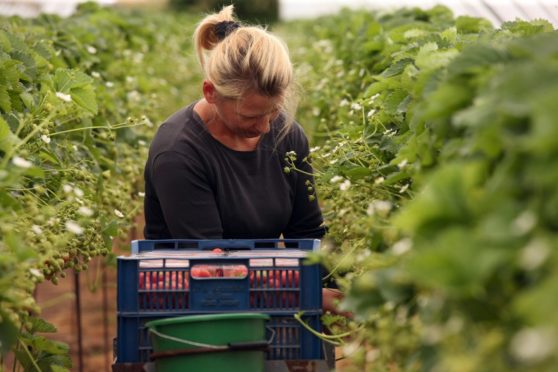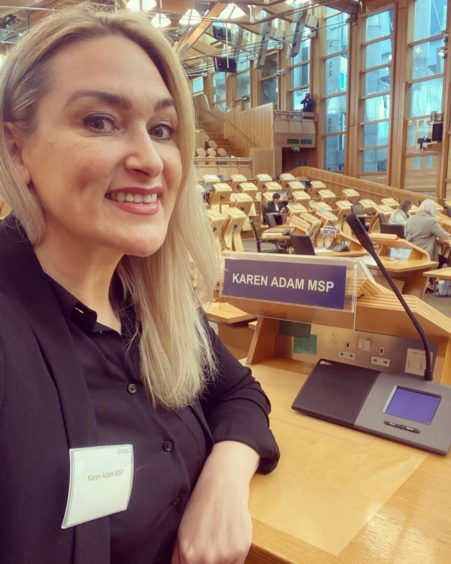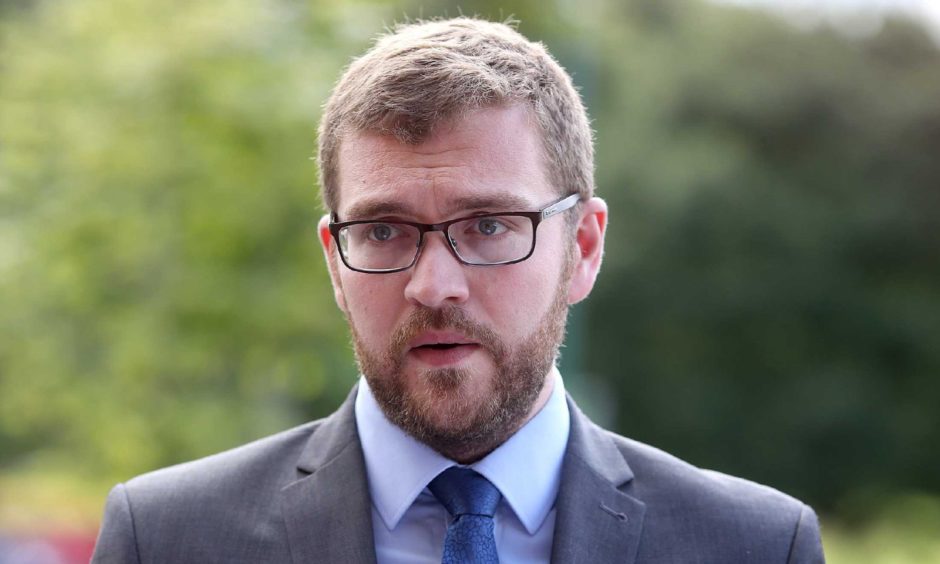Soft fruit will be left to “rot in the fields” and the North East will be hardest hit by the economic impact of Brexit, MSPs have warned.
A debate on the on the impact of Brexit on skills and staff was held by the SNP Government on Wednesday afternoon, where a motion highlighting the commitment to invest an additional £500 million to support new jobs and reskill people for the future was passed.
The Scottish Conservatives warned any skills shortages would be “worsened” by a second referendum on Scottish independence.
Soft fruit companies warned earlier this year the UK Government was “sabotaging” the seasonal workers scheme , by keeping recruitment companies “secret”.
How they voted
MSPs voted with the Government following the debate.
A motion highlighting the commitment to invest an additional £500 million over the current parliamentary session to support new jobs and reskill people for the future was passed by 91 votes to 29, with one abstention.
A Labour amendment stressing the “need for an effective industrial strategy” and calling on the Scottish Government to develop such a strategy to prevent the loss of skilled jobs was also passed by 93 votes to 29.
But a Conservative amendment, which called on the Government to “avoid needless disruption to the labour market by abandoning its plans to hold a divisive independence referendum while Scotland is recovering from a global pandemic” was rejected by 29 votes to 73 with 21 abstentions.
Farm worries
SNP Perthshire South and Kinross-shire MSP Jim Fairlie warned of another soft fruit season with wasted crops, due to a lack of pickers.
“Brexit presents some very real hurdles.
“The ending of freedom of movement is going to have enormous consequences for farmers with potentially huge shortages of seasonal agricultural workers during this picking season.
“The UK Government has deliberately delayed the allocation of licenses which means companies will have real difficulty recruiting staff to get them here in time for the picking season.
“We are going to be left literally with crops unpicked and stuff rotting in the fields. It is not as if it has not happened before.
“It will put real pressure on other areas of the economy, food processors, abattoirs and the red meat sector.”
Hidden deprivation
Banffshire and Buchan Coast SNP MSP Karen Adam said her constituency was one with “hidden deprivation” and that the way to recover from the economic consequences of Brexit was to reskill locals.
She said: “My constituency can be described as a ‘shire with two tales to tell’.
“Frequently described as affluent and wealthy, but this would be a description far removed from many within my constituency.
“The 2020 Scottish Index of Deprivation identifies Fraserburgh and Peterhead as areas in the top 10 and 20% of the most deprived in Scotland.
“This is compounded in the most difficult of times by many coastal communities due to the pandemic and the economic consequences of Brexit.
“The underlying resilience of our economy relies on fair work and quality jobs for all.”
Conservatives warn of referendum
Oliver Mundell said the government should be supporting re-training and reskilling the workforce, regardless of Brexit.
His defeated amendment called for the government to work more closely with Westminster to “to maximise the opportunities for Scotland outside of the EU” and abandon plans for a second independence vote.
He said: “Through the pandemic we have seen numerous examples of bar workers who started driving delivery vans, to chefs who moved into construction, to beauticians who started working in supermarkets and becoming home carers, to costume designers who started manufacturing facemasks.
“Each and everyone of them are unsung heroes of this pandemic who have gone above and beyond, not just for their own but others too.
“The truth is this type of thing should be normal, not just in exceptional times.
“It should be driven by individual choice, not economic need and should be supported by the government.
“Gone are the days of a job for life.
“It is time to get serious about supporting people to retrain and upskill. It means getting past the point where we expect the majority of training and learning to be completed by 22.
“It means adopting much more innovative and flexible policies.”


